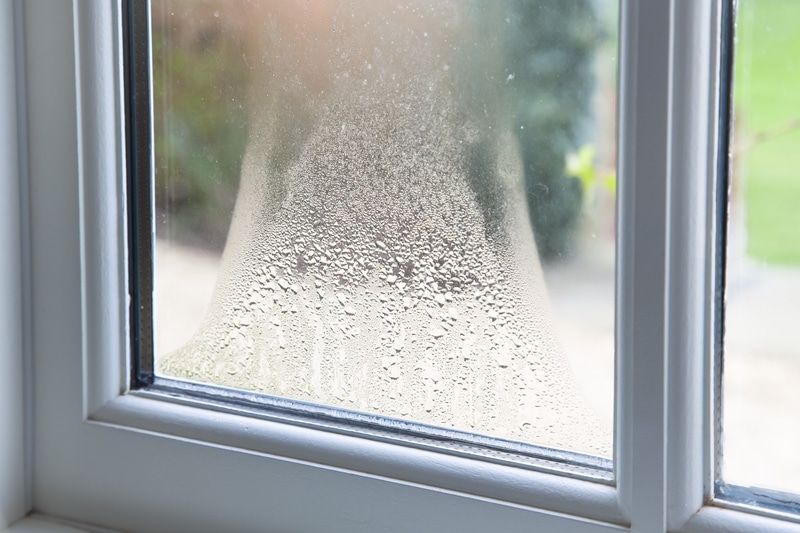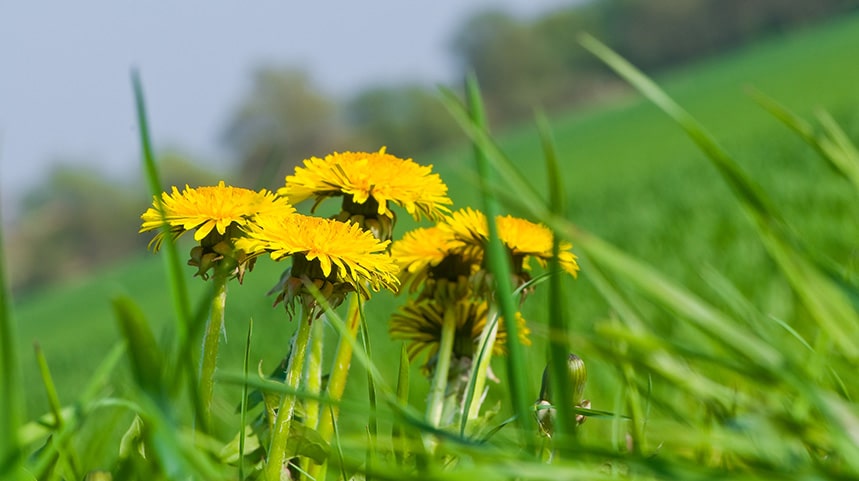
Now that the weather is getting cooler, you might have noticed a few drafts sneaking through the windows of your …

In fact, one of the most popular commercial weed killers, Monsanto’s Roundup product, is based on a chemical called glyphosate, which the World Health Organization says is “probably carcinogenic,” meaning it causes cancer. That’s a high price to pay not to have dandelions in the yard this summer. Luckily, there are lots of better options using natural ingredients that are just as effective as chemically-based commercial weed killers.
First, it’s good to understand exactly what kind of weeds you’re dealing with. You can check out Better Home & Garden’s weed identification guide to figure out which plants are invasive, and which ones you should keep around.
It’s also worth noting that you don’t have to immediately jump to weed killers to control certain weeds. Plants like dandelions, ragweed, and other invasive species can often be controlled with a combination of mulch and pulling out plants by hand. Pulling out weeds is also often easier after a rainstorm, although you can always use a knife, a screwdriver, or a garden trowel to loosen any stubborn roots. Mulch is also an easy fix because it keeps your topsoil cool and wet as well as blocking the light that weeds need to grow.
If you do find your lawn or garden is suffering from a plethora of weeds, there are far better substances to use than the commercial weed killers sold at your local hardware store.
The most natural weed killer available is one you might not have heard of: water. A pot of boiling water with a tablespoon of salt added will effectively wipe out weeds invading driveways and sidewalks.
Another more common substance used for cooking and cleaning can also be a highly effective herbicide: vinegar. Not only is it friendly to the environment, it won’t harm people or pets if it’s used properly. You can pour a gallon of cheap, generic white vinegar into a bucket of water, add one cup of table salt, and one tablespoon of liquid dishwashing soap. After this solution is bottled into a plastic spray bottle, it can be used indefinitely as an effective tool to combat weeds in the yard or garden. It’s best to apply this concoction on a dry, hot day, because the weeds will begin to wilt and die off within just a few hours. You can safely replant in the area once the weeds have died off in a day or two.
Another, slightly more noxious way to control and kill off weeds is by using the common household substance bleach. Bleach is highly effective in killing mature weeds, and unlike vinegar, will prevent new weeds from coming back because it remains in the soil. This makes it a good weed killer for paved areas like driveways and sidewalks, but avoid using bleach in flowerbeds or gardens, because the acidic substance will remain in the soil and negatively impact the flowers and plants you want to keep. Keep in mind that bleach is a toxic substance, so it should be used carefully. At higher acidic levels, bleach can burn skin and melt plastic containers, as well as causing dizziness from its fumes.
Another product that serves to kill weeds permanently is borax. Although borax is sold commercially in most grocery or hardware stores, it’s a naturally occurring substance called sodium borate. It’s created naturally when seasonal lakes experience recurring evaporation, although commercial providers like 20 Mules Team and Arm & Hammer sell cheap and effective products. It’s relatively low in toxicity compared to bleach and commercial herbicides, but users should still use caution around children and valued plants. Dissolve ten ounces of borax in about 4 ounces of warm water to create a base solution, then add it to about two gallons of water. The quantity can also be reduced or increase to suit your lawn or garden.
Finally, one last natural weed killer is another common household substance that might seem counter-intuitive as a weed killer: corn gluten meal. This substance is commonly used on lawns to keep weeds from sprouting without damaging other plants, flowers or shrubs. It’s important to apply corn gluten meal as a weed killer in the early spring before weeds start to grow. As a bonus, corn gluten meal also works very effectively to kill off ant populations. Traveling ants pick up the gluten and carry it back to their nests, but they can’t digest it, which kills off the colony. Now you have a host of healthy options to commercial chemical weed killers that will cost you a fraction of what you might have paid. You can also check out more tips for a healthy lawn here.

Now that the weather is getting cooler, you might have noticed a few drafts sneaking through the windows of your …

Draftiness becomes particularly bothersome with the onset of winter. Whether it’s doors, windows, baseboards – or even electrical outlets – …

Knowing what qualifies as good attic ventilation is not common knowledge, but without it your home can see a lack …

We know you do not want to deal with those lengthy phone calls, the hassle of finding a contractor and …

As someone who may not want to face the reality that the notorious Midwest cold front is upon us and …

Here are six proactive steps you can take for protecting your home, family or other occupants from dangerous storms. Tip …